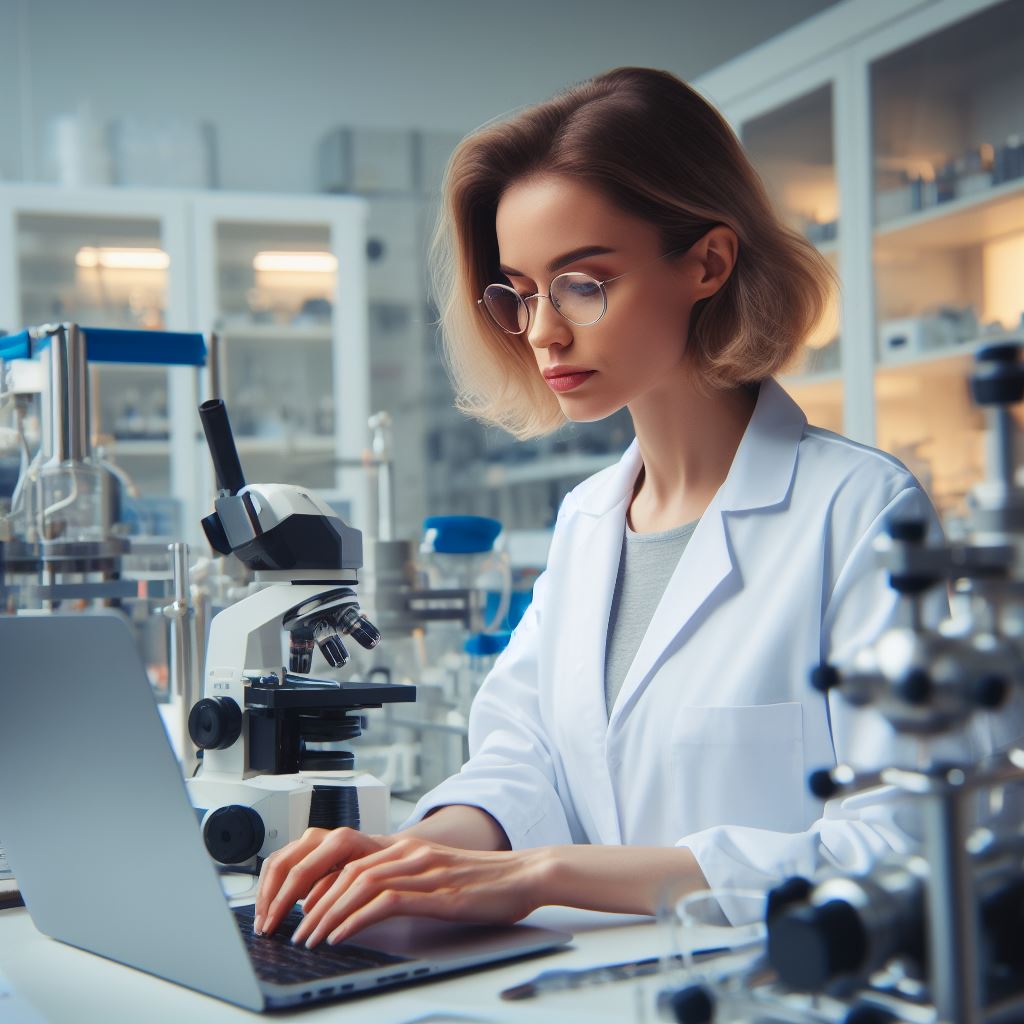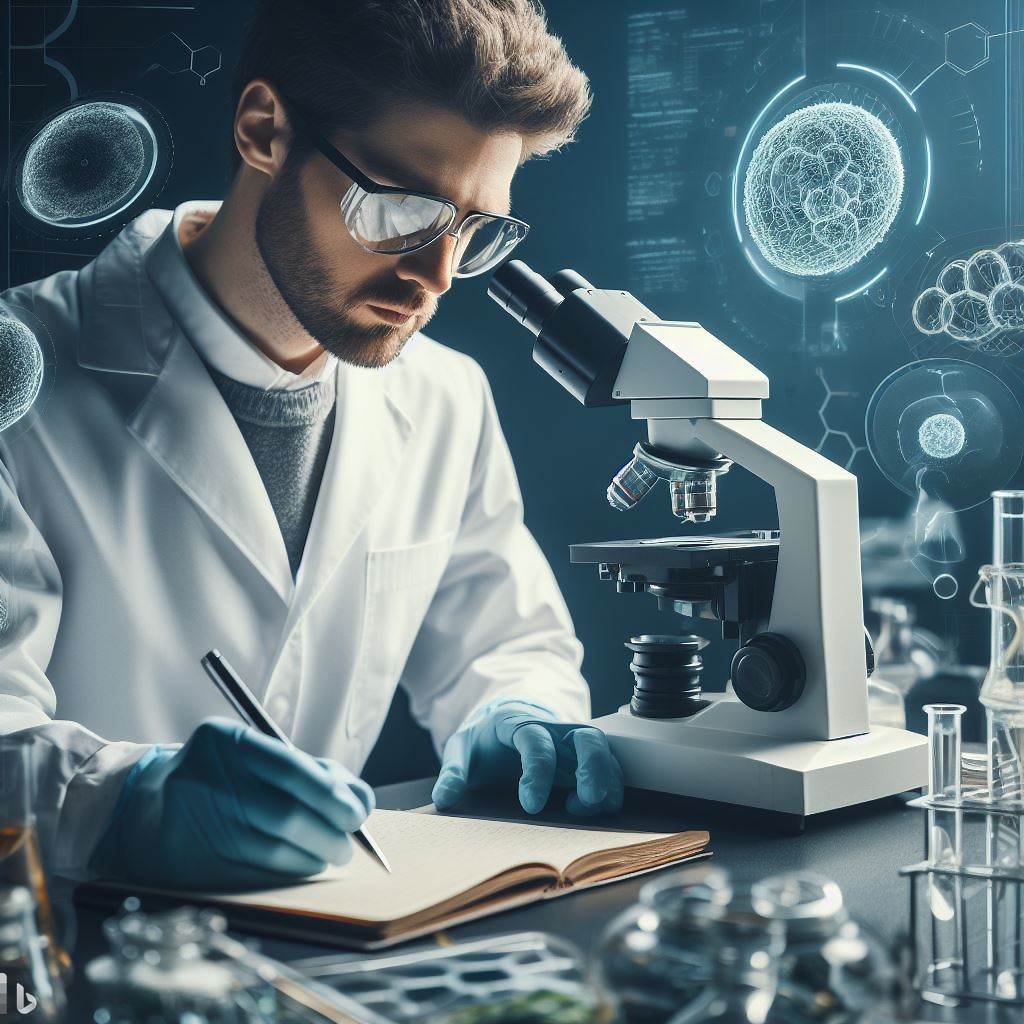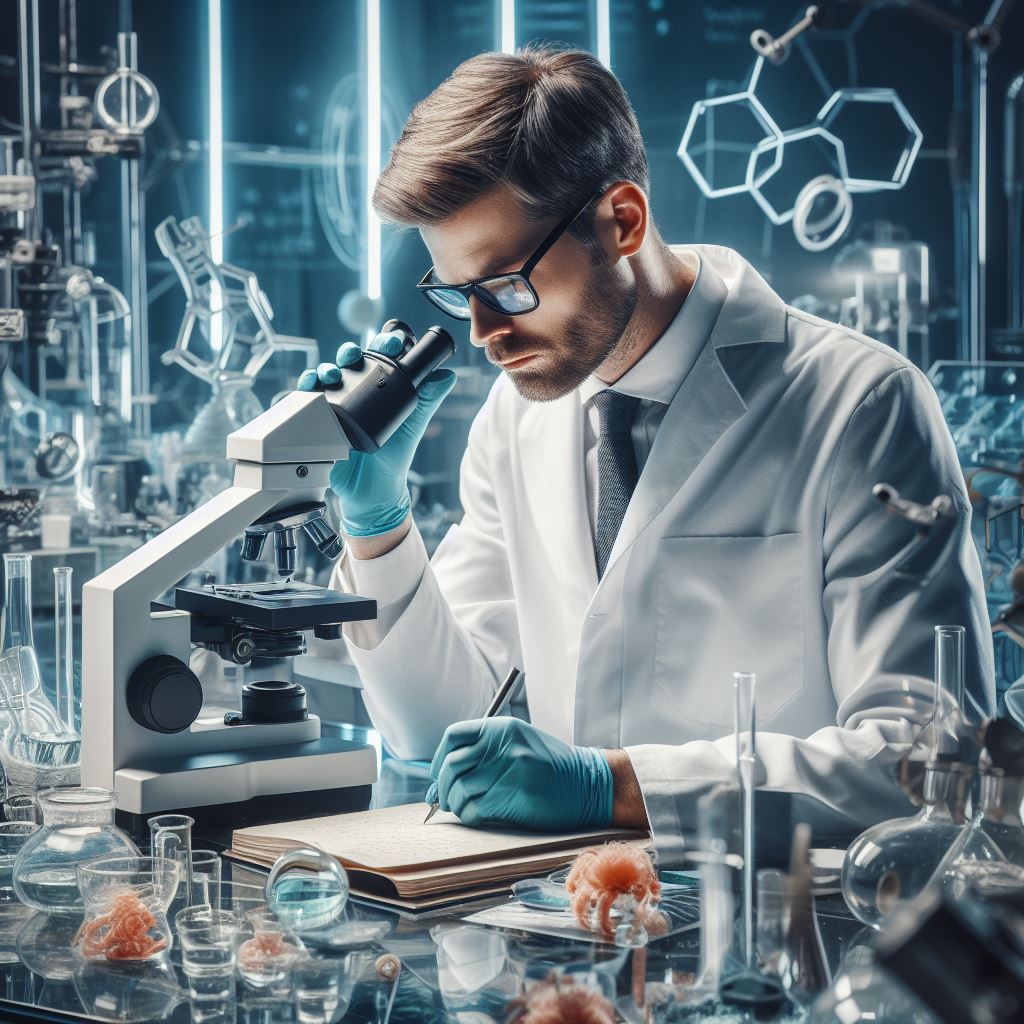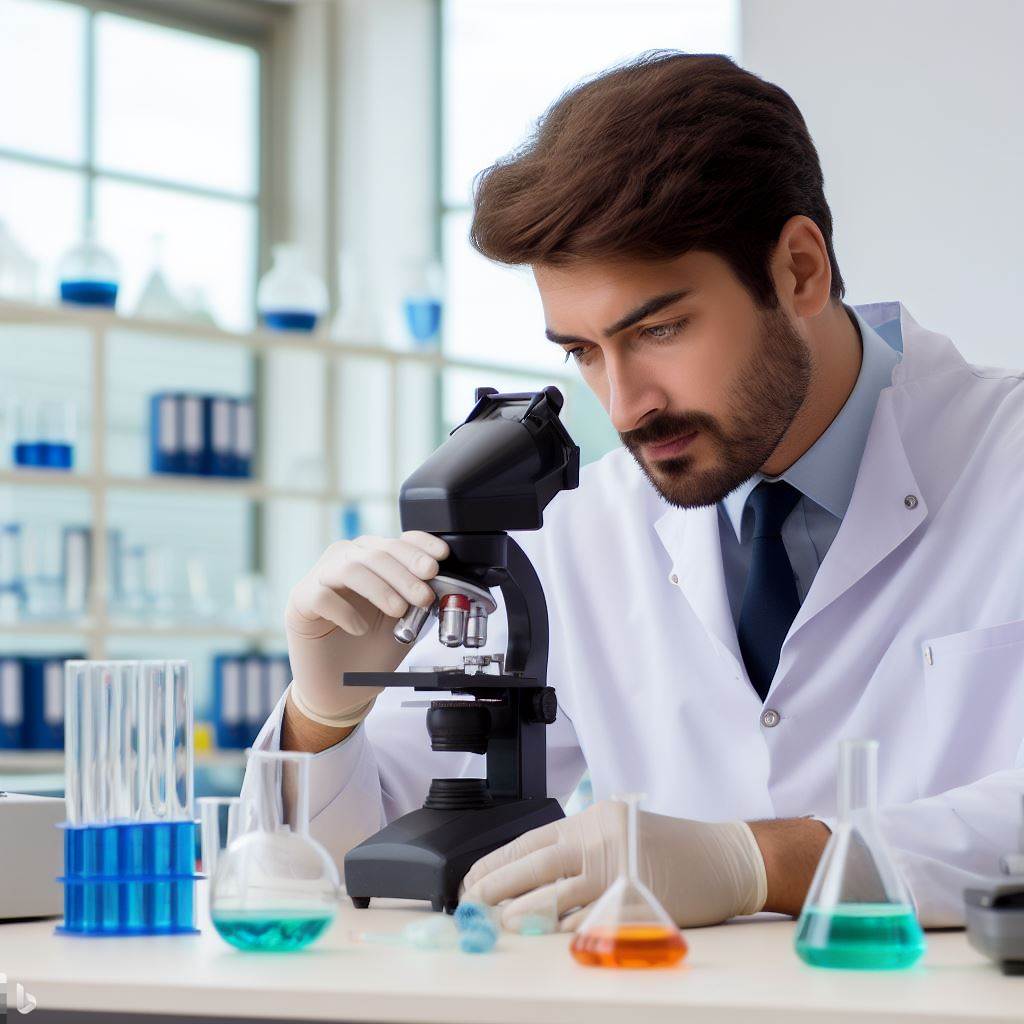Introduction
Attending U.S. Physics Conferences: Tips and Takeaways provides valuable insights for physicists seeking to enhance their professional growth.
Participating in conferences allows physicists to exchange knowledge, share research findings, and network with experts in the field.
This blog post aims to highlight the significance of attending physics conferences and offer an overview of the content discussed.
Importance of attending physics conferences
- Networking opportunities: Conferences enable physicists to meet colleagues, establish collaborations, and build professional relationships.
- Knowledge exchange: Through presentations, discussions, and workshops, attendees can learn about cutting-edge research and advancements in physics.
- Presentation skills: Presenting research at conferences helps physicists improve their communication abilities and receive feedback from peers.
- Career development: Attending conferences enhances visibility, opens doors to job opportunities, and demonstrates commitment to professional growth.
Overview of the blog post
- Benefits of attending physics conferences: This section elaborates on the advantages discussed above, emphasizing their impact on professional development.
- Preparing for a conference: Tips on selecting relevant conferences, planning travel and accommodation, and organizing research materials for presentations.
- Maximizing conference experience: Strategies for effective networking, engaging in meaningful discussions, and making the most of poster or oral presentations.
- Utilizing conference resources: Exploiting resources like online conference platforms, mobile apps, and social media for networking and knowledge acquisition.
- Post-conference follow-ups: Tips on maintaining connections, sharing research outcomes, and exploring collaborative opportunities after the conference concludes.
Attending U.S. physics conferences can be a transformative experience for physicists, offering countless benefits for professional growth and networking.
By actively engaging in conferences, physicists can stay at the forefront of research and shape their career trajectory in the dynamic field of physics.
Preparing for the Conference
Attending U.S. physics conferences is transformative for researchers and professionals. Follow these steps to prepare for a productive experience:
- Maximize networking and learning by researching and selecting the right conferences.
- Begin by exploring reputable physics conference websites or seeking recommendations from colleagues.
- Evaluate topics, speakers, location, and reputation for alignment with your interests and goals.
- Read reviews or testimonials from past attendees to gauge the conference’s quality.
- Review the program and schedule to plan your time effectively.
- Prioritize keynote speakers, workshops, and panel discussions of interest.
- Note any schedule conflicts and prioritize sessions.
- Identify sessions offering networking or professional development opportunities.
- Create a personalized agenda to stay organized.
- Use a digital calendar or conference app to manage your schedule.
- Prioritize sessions based on relevance, popularity, and value to your research or career.
- Keep flexibility in your schedule for spontaneous discussions and unexpected opportunities.
- Prepare a checklist for essential items like business cards and presentation materials.
- Check for dress code requirements and necessary equipment.
- Pack comfortable attire and shoes for navigating the conference.
- Charge electronic devices and bring extra batteries or chargers.
- Research the venue and nearby facilities for meal breaks and networking.
- Familiarize yourself with the venue layout to save time between sessions.
- Use a map or conference app for easy navigation.
- Mentally prepare with specific goals and an open mindset for a rewarding conference experience.
Proper conference preparation ensures a valuable, seamless, and enjoyable experience, enhancing your career and professional network.
Networking at the Conference
- Build connections by actively seeking out fellow attendees and introducing yourself.
- Engage in discussions during sessions and participate in Q&A sessions to exchange ideas.
- Attend networking events, such as receptions and social gatherings, to meet new people.
- Exchange contact information with individuals you connect with to foster future collaborations.
- Utilize social media platforms, like LinkedIn and Twitter, to connect with attendees before, during, and after the conference.
Building Connections with Fellow Attendees
- Approach fellow attendees with a friendly and open attitude to create a positive first impression.
- Engage in conversation by asking questions and actively listening to other attendees’ experiences and research.
- Share your own work and experiences to establish common ground and potential collaborations.
- Attend networking sessions specifically organized to facilitate connections among attendees.
- Follow up with fellow attendees after the conference to maintain the connection and explore future collaboration opportunities.
Engaging in Discussions and Exchanging Ideas
- Take part in panel discussions and ask thoughtful and stimulating questions to engage with presenters.
- Participate in group discussions and workshops to exchange ideas and gain new perspectives.
- Be open to different viewpoints and challenge your own ideas through respectful debates.
- Engage in casual conversations with other attendees during breaks and meals to foster idea exchange.
- Take notes during sessions to reflect on the ideas discussed and follow up on them later.
Leveraging Social Media Platforms
- Utilize official conference hashtags on social media to connect with other attendees and share insights.
- Join online forums or discussion groups related to the conference to engage in virtual conversations.
- Share interesting conference presentations or articles on social media to spark discussions.
- Follow and interact with key influencers and researchers in your field on social media platforms.
- Use social media platforms to stay connected with fellow attendees and continue the conversation after the conference.
Read: Continuous Learning: Updating Skills as a U.S. Research Scientist
Maximizing Learning Opportunities
Attending U.S. physics conferences provides a wealth of learning opportunities for both seasoned professionals and aspiring physicists alike.
Here are some tips to make the most of your conference experience:
Attending presentations and talks
- Choose presentations aligned with your research interests to gain valuable insights.
- Engage actively by taking notes and asking relevant questions during Q&A sessions.
- Make connections with presenters to foster future collaborations and expand your network.
- Stay focused and attentive throughout the talks to absorb as much knowledge as possible.
Participating in workshops and panel discussions
- Identify workshops and panel discussions that offer in-depth discussions on specific topics.
- Prepare beforehand by familiarizing yourself with the workshop’s agenda and relevant materials.
- Contribute actively by sharing insights, experiences, and asking questions to enhance the discussion.
- Network with workshop facilitators and panelists to gain valuable perspectives and industry contacts.
Taking advantage of poster sessions
- Review the conference program to note the poster sessions related to your area of interest.
- Engage in meaningful conversations with poster presenters to understand their research.
- Exchange contact information with researchers conducting studies aligned with your own work.
- Schedule follow-up discussions to further explore potential collaborations or knowledge sharing.
By actively participating in these activities, you can extract maximum value from U.S. physics conferences.
Here are a few additional pointers to optimize your learning experience:
- Utilize mobile apps or online platforms provided by the conference to plan your schedule effectively.
- Prioritize attending sessions featuring renowned experts to gain insights from their expertise.
- Interact with fellow conference attendees during breaks to exchange ideas and perspectives.
- Take advantage of any social events organized alongside the conference to network in a relaxed setting.
- Consider joining online discussion forums or groups dedicated to conference attendees for ongoing discussions.
- Reflect on your conference experience and identify key takeaways for implementing in your own research.
Remember, attending U.S. physics conferences is not just a passive learning experience.
By actively engaging in presentations, workshops, and poster sessions, you can enhance your knowledge, build valuable connections, and fuel your own scientific endeavors.
Read: Understanding U.S. Ethics and Regulations for Research Scientists
Presenting your Work
- Clarify the purpose and significance of your research in a concise and compelling manner.
- Organize your presentation logically, with a clear introduction, body, and conclusion.
- Use visuals such as graphs, charts, and images to enhance your presentation and make it more engaging.
- Practice your presentation several times to ensure that you are well-prepared and confident.
- Be mindful of your audience’s level of understanding and adjust your language and explanations accordingly.
Submitting an abstract
- Follow the conference guidelines for abstract submission, including word limits and formatting requirements.
- Clearly state the objectives, methods, results, and conclusions of your research in the abstract.
- Highlight the novelty and importance of your work to capture the interest of conference attendees.
- Edit and proofread your abstract to ensure clarity, accuracy, and correct grammar and spelling.
- Submit your abstract before the deadline to maximize your chances of being accepted.
Preparing an effective presentation
- Organize your content into a logical sequence, ensuring a smooth flow of ideas and information.
- Use clear and concise language, avoiding jargon and complex technical terms as much as possible.
- Include relevant visuals, such as slides or props, to enhance audience understanding and engagement.
- Practice your presentation to ensure that you stay within the allotted time and maintain a steady pace.
- Consider incorporating storytelling elements to make your presentation more memorable and relatable.
Engaging with the audience during the session
- Make eye contact and smile to establish a connection with the audience.
- Encourage audience participation by asking questions or inviting discussion.
- Be open to feedback and address any questions or concerns raised by the audience.
- Use body language and gestures to emphasize key points and maintain audience interest.
- Stay enthusiastic and passionate about your work to inspire and captivate the audience.
Read: Top U.S. Institutions Employing Research Scientists Today

You Might Also Like: Virologist Internships: How to Gain Practical Experience
Utilizing Conference Resources
Attending a physics conference is not just about attending sessions and presentations. To make the most out of your experience, make sure to use the available conference resources wisely.
Here are some tips on how to effectively utilize these resources:
Visiting exhibitors and vendors
- Take advantage of the opportunity to interact with exhibitors and vendors.
- Engage in conversations and learn about the latest products and services relevant to your field.
- Collect brochures, samples, or any other materials that can be useful for future reference.
Accessing conference proceedings and materials
- Check if the conference provides access to proceedings and materials either in print or online.
- Obtain these resources to stay updated with the latest research findings and discussions.
- Take notes, highlight important information, and identify potential collaborators for future projects.
Utilizing online platforms for post-conference resources
- Many conferences now offer online platforms where attendees can access additional resources.
- Take advantage of these platforms to explore extended content, such as videos, supplementary materials, or discussions.
- Participating in online forums or Q&A sessions can facilitate deeper understanding and networking opportunities.
Create a personalized conference schedule
- Before the conference, go through the program and select the sessions that align with your research interests.
- Plan your day strategically to accommodate sessions, meetings, and time for interactions and breaks.
- Prioritize attending talks by renowned researchers and explore diverse sessions to broaden your knowledge.
Engage in networking opportunities
- Conferences provide excellent networking opportunities with professionals in your field.
- Attend social events, networking sessions, or coffee breaks to meet new people and expand your professional network.
- Prepare your introduction and keep business cards or contact information handy for potential collaborations or job opportunities.
Attend workshops, tutorials, and career development sessions
- Many conferences offer workshops and tutorials on specific topics or skills.
- Take advantage of these sessions to enhance your knowledge, learn new techniques, or gain career insights.
- Participate actively, ask questions, and engage with experts to make the most out of these learning opportunities.
Follow up after the conference
- After the conference, it is essential to follow up with new contacts and potential collaborators.
- Connect with them on professional networking platforms like LinkedIn or send personalized emails expressing your interest.
- Share resources, discuss potential collaborations, or explore opportunities for future projects.
Feedback and contribute to the conference community
- If the conference organizers request feedback, take the time to provide constructive input.
- Your feedback can help improve future conferences and ensure a better experience for participants.
- You can also contribute to the conference community by volunteering, organizing sessions, or submitting your own research for future conferences.
By effectively utilizing conference resources, you can enhance your learning experience, expand your professional network, and stay updated with the latest advancements in your field.
Make the most out of every opportunity, and don’t forget to enjoy the conference experience as well!
Read: Top U.S. Institutions Employing Research Scientists Today
See Related Content: How Climate Change Shapes the U.S. Environmental Scientist‘s Role
You Might Also Like: Navigating the U.S. Visa Process for International Physicists
Post-Conference Follow-up
Attending a physics conference is not only about the talks and networking during the event. It’s also important to follow up afterwards to maximize the benefits of your participation.
Sending Thank-You Emails and Notes
One of the first things you should do after a conference is to send thank-you emails or notes to the organizers and the people you connected with during the event.
Express your gratitude for the opportunity to attend and any valuable discussions or insights you gained.
Thanking the organizers shows your appreciation for their hard work in putting the conference together.
This simple gesture can create a positive impression and may open doors for future collaborations or invitations to similar events.
Similarly, sending thank-you notes to the people you met and interacted with during the conference is essential.
Mention specific discussions or shared interests to personalize your message and reinforce the connection.
Transform Your Career Today
Unlock a personalized career strategy that drives real results. Get tailored advice and a roadmap designed just for you.
Start NowConnecting with New Contacts on Professional Networks
Physics conferences provide excellent opportunities to expand your professional network. After the event, it’s crucial to connect with new contacts on professional networks, such as LinkedIn.
Sending personalized connection requests to the people you met shows your interest in maintaining a professional relationship beyond the conference.
Include a brief message reminding them of your meeting and expressing your desire to stay in touch.
Engaging with your new contacts on professional networks allows you to continue the conversation and explore collaboration or mentorship opportunities.
It also helps you stay updated with their work and other relevant developments in the field.
Reflecting on the Conference Experience
Take some time to reflect on your overall conference experience. Consider what you learned, the connections you made, and how the event contributed to your professional growth.
Reflecting on the conference experience helps consolidate your knowledge and identify key takeaways.
It allows you to pinpoint areas of improvement or future research directions based on the discussions and presentations you encountered.
Furthermore, reflecting on the conference experience can help you evaluate the relevance of the event to your specific professional goals.
It can guide your decision-making process for future conference attendance, ensuring you prioritize events that align with your research interests.
Attending physics conferences is not just about being physically present at the event. Post-conference follow-up is equally important and can significantly impact your professional growth.
Sending thank-you emails and notes to organizers and new contacts demonstrate your gratitude and strengthen connections.
Connecting on professional networks allows for ongoing engagement and potential collaborations. Reflecting on the conference experience solidifies your knowledge and helps plan for future events.
By actively following up after a physics conference, you maximize the benefits of attending and position yourself for continued success in your field.
Find Out More: The Life and Times of a U.S. Physicist: A Day in Detail
Explore Further: Career Opportunities for Geneticists in Research
Conclusion
On a final note, attending U.S. physics conferences can be a valuable experience for any physicist.
Recap of the key takeaways
Throughout this blog chapter, we have discussed various tips and takeaways from attending these conferences.
Firstly, it is essential to prepare well in advance by researching the conference agenda and speakers.
Attending keynote speeches and panel discussions can offer unique insights and perspectives.
Networking is another crucial aspect of these conferences, as it allows for professional collaborations and future opportunities.
Making use of social media platforms can enhance visibility and engagement with the physics community.
Encouragement to attend future conferences
After gaining knowledge and experience from attending U.S. physics conferences, it is evident that the benefits outweigh any challenges.
These conferences provide an opportunity to stay updated with the latest advancements in the field, meet esteemed physicists, and establish valuable connections.
Showcase Your Business Today
Reach thousands of readers actively exploring professional services. Publish your business profile and grow your audience now.
Publish NowThe knowledge gained can enhance your research, improve your career prospects, and contribute to the advancement of physics as a whole.
Closing remarks
Attending U.S. physics conferences has the power to transform your professional life and broaden your scientific horizons.
By actively participating in these events and implementing the tips discussed, you can make the most out of every conference.
So, mark your calendars, plan ahead, and embrace the enriching experience of attending U.S. physics conferences.
[E-Books for Sale]
The Big Book of 500 High-Paying Jobs in America: Unlock Your Earning Potential
$19.99 • 500 High-Paying Jobs • 330 pages
Explore 500 high-paying jobs in America and learn how to boost your career, earn more, and achieve success!
See All 500 High-Paying Jobs of this E-Book
1001 Professions Without a Degree: High-Paying American Jobs You Can Start Now
$19.99 • 1001 Professions Without a Degree • 174 pages
Discover 1001 high-paying jobs without a degree! Unlock career tips, skills, and success strategies for just $19.99!




